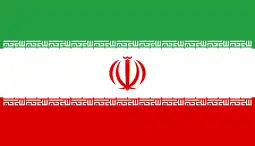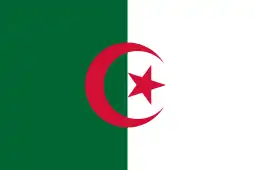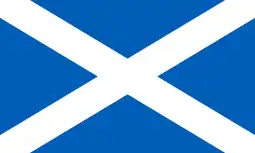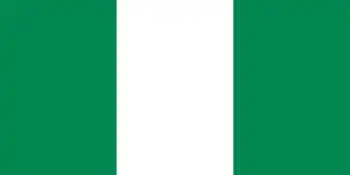Montreal Manic
The Montreal Manic or the Manic de Montréal were a professional soccer team based in Montreal, Quebec, Canada, that played in the North American Soccer League.
 | |||
| Full name | Montreal Manic / Manic de Montréal | ||
|---|---|---|---|
| Nickname(s) | The Manic / Le Manic | ||
| Founded | 1981 | ||
| Dissolved | 1983 | ||
| Stadium | Olympic Stadium Montreal Forum (indoor) | ||
| Capacity | 66,308 | ||
| Owner | Molson Brewery | ||
| Chairman | Roger Samson | ||
| Coach | Eddie Firmani Andy Lynch | ||
| League | North American Soccer League | ||
|
| |||
History
"Le Manic" as they were called by the locals, were Montreal's first professional soccer team since the NASL's Montreal Olympique folded in 1973. The team was named after a river in northeast Quebec, the Manicouagan, the site of a massive hydroelectric project.[1]
The Montreal Manic competed from 1981 to 1983, with their home field being the Montreal Olympic Stadium. Previous to Montreal, the team played as the Philadelphia Fury from 1978 through 1980 and ten Fury players as well as manager Eddie Firmani moved to Montreal for 1981.
After defeating the Los Angeles Aztecs in the first round of the 1981 NASL playoffs, the Manic faced the Chicago Sting. An Olympic Stadium crowd of 58,542 (the largest-ever to see an NASL playoff game outside the Cosmos' Giants Stadium) saw the Manic defeat the Sting in the opening match before the series shifted to Chicago where the Manic lost twice and were eliminated. In 1982 the Manic performed better in the regular season than in 1981, but lost in the first round of the playoffs to the Fort Lauderdale Strikers and Firmani was fired.
In 1983 the interest in the team and the average attendance fell sharply.[2] The Manic's opening home match in 1983 versus the Tampa Bay Rowdies was witnessed by just 6,460 fans.[3] However, in their final season, the Manic produced one of the great shocks in NASL history by eliminating the New York Cosmos in the quarterfinals of the 1983 playoffs, winning the first match away 4–2 and winning the second match at home in a shootout. The Manic then lost to the Tulsa Roughnecks in the next round.
In the 1983 season, the Manic hosted Nottingham Forest (a 4–3 extra time loss) and FC Nantes (a 2–1 shootout victory for Montreal) at the Olympic Stadium.[4]
In his book, Soccer in a Football World, North American soccer historian Dave Wangerin partially attributes the downfall of the Manic organization to the Molson ownership's declaration to attempt to build a Team Canada roster for the 1984 season.[5] The new direction of the team meant many of the team's players who originated from foreign countries would be let go, to emphasize an all Canadian roster instead. Given that Canada had a relatively poor track record at producing world class soccer talent, Montreal fans were likely put off by the prospect that the quality of the team's play would instantly diminish for the 1984 season.[6] More importantly, the team was allegedly in financial trouble despite the fact that the Manic had some of the highest attendances in the NASL. Reports indicated that during the first two seasons, the Manic lacked profitability as they had lost $7 million. Manic president Roger Samson blamed the losses on bad stadium deals, high rents, having the concession profits going directly to the Montreal Expos, a lack of a television deal, and that an average attendance of over 20,000 was insufficient to keep the franchise solvent.[7]
Year-by-year
| Year | League | W | L | Pts | Reg. season | Playoffs | Avg Attend |
|---|---|---|---|---|---|---|---|
| 1981 | NASL | 15 | 17 | 141 | 2nd, Eastern Division | Won 1st round (Los Angeles) Lost quarterfinal (Chicago) |
23,704 |
| 1981–82 | NASL Indoor | 9 | 9 | — | 1st, American Conference, East Division | Lost 1st round (Tampa Bay) | |
| 1982 | NASL | 19 | 13 | 159 | 2nd, Eastern Division | Lost 1st round (Ft. Lauderdale) | 21,348 |
| 1983 | NASL Indoor Grand Prix | 5 | 3 | 53 | 1st, Grand Prix preliminaries | Runners-up (Tampa Bay) | 6,972 |
| 1983 | NASL | 12 | 18 | 124 | 4th, Eastern Division | Won 1st round (New York) Lost semi-final (Tulsa) |
9,910 |
Honours
NASL championships
NASL Indoor championships
Division titles
Indoor Leading Goal Scorer[8]
Indoor Leading Goalkeeper[8]
Indoor Tournament Defensive MVP[8]
All-Star first team selections[9]
All-Star second team selections
Indoor All-Stars[10]
|
Canadian Soccer Hall of Fame[11]
U.S. Soccer Hall of Fame[12]
Indoor Soccer Hall of Fame[13]
|
Notable players
 Mostafa Ebadi (1981–1983)
Mostafa Ebadi (1981–1983).svg.png.webp) Nick Albanis (1981)
Nick Albanis (1981) Mehdi Cerbah (1983)
Mehdi Cerbah (1983).svg.png.webp) Chris Chueden (1981–1982)
Chris Chueden (1981–1982) Elvis Comrie (1982–1983)
Elvis Comrie (1982–1983) Michel Corre (1981)
Michel Corre (1981).svg.png.webp) Brian Decaire (1982–1983)
Brian Decaire (1982–1983) Mimmo Dell'Armi (1982)
Mimmo Dell'Armi (1982).svg.png.webp) Pasquale Di Blasio (1983)
Pasquale Di Blasio (1983).svg.png.webp) Charlie Falzon (1981–1982)
Charlie Falzon (1981–1982) Pat Fidelia (1981)
Pat Fidelia (1981) Ed Gettemeier (1983)
Ed Gettemeier (1983).svg.png.webp) Gerry Gray (1983)
Gerry Gray (1983) Mike Hewitt (1983)[15]
Mike Hewitt (1983)[15] Gordon Hill (1981–1982)
Gordon Hill (1981–1982).svg.png.webp) Greg Ion (1983)
Greg Ion (1983).svg.png.webp) Greg Kern (1981–1982)
Greg Kern (1981–1982) Hayden Knight (1981–1982)
Hayden Knight (1981–1982) Jean-François Larios (1983)
Jean-François Larios (1983).svg.png.webp)
 Dwight Lodeweges (1983)
Dwight Lodeweges (1983) Andy Lynch (1981–1982)
Andy Lynch (1981–1982).svg.png.webp) Carmine Marcantonio (1981–1983)
Carmine Marcantonio (1981–1983).svg.png.webp) Frantz Mathieu (1983)
Frantz Mathieu (1983).svg.png.webp) John McGrane (1981–1983)
John McGrane (1981–1983).svg.png.webp) Dale Mitchell (1983)
Dale Mitchell (1983) Victor Nogueira (1982)
Victor Nogueira (1982) Fran O'Brien (1981–1982)
Fran O'Brien (1981–1982).svg.png.webp) Andrew Parkinson (1981–1982)
Andrew Parkinson (1981–1982).svg.png.webp) Brian Quinn (1982–83)
Brian Quinn (1982–83) Bob Rigby (1981–1982)
Bob Rigby (1981–1982) Bobby Smith (1981)
Bobby Smith (1981).svg.png.webp) Damir Šutevski (1981–1982)
Damir Šutevski (1981–1982) Tony Towers (1981–1983)
Tony Towers (1981–1983) Thompson Usiyan (1981–1982)
Thompson Usiyan (1981–1982).svg.png.webp) John Van Oostveen (1981–1983)
John Van Oostveen (1981–1983) Robert Vosmaer (1981–1982)
Robert Vosmaer (1981–1982).svg.png.webp) Dragan Vujović (1982–1983)
Dragan Vujović (1982–1983) Alan Willey (1981–83)
Alan Willey (1981–83)
Head coaches
.svg.png.webp)
 Eddie Firmani 1981–1982
Eddie Firmani 1981–1982.svg.png.webp)
.svg.png.webp) Pierre Mindru interim (1982)[16][17]
Pierre Mindru interim (1982)[16][17] Andy Lynch (1983)[18]
Andy Lynch (1983)[18]
See also
References
- Gammon, Clive "Manic but not depressive", "Sports Illustrated", 15 June 1981. Retrieved on 28 November 2018.
- "Le Manic se range derrière l'Impact". rds.ca/. 16 February 2012. Retrieved 16 February 2012.
- "1983 Rowdies vs. Manic Game Report". mytampabayrowdies.blogspot.com. Retrieved 30 November 2018.
- "Montreal Manic Friendlies". www.nasljerseys.com/. Retrieved 27 November 2018.
- Wangerin, Dave. (2008), Soccer in a Football world: The Story of America's Forgotten Game, Temple University Press. (ISBN 1592138853)
- "Le Manic, c'est fini". radio-canada.ca/. 8 February 1983. Retrieved 16 February 2012.
- "Manic Depression". ussoccerplayers.com. 14 October 2015. Retrieved 14 October 2015.
- "The Evening Independent - Google News Archive Search". news.google.com. Retrieved 19 July 2023.
- "Archived copy". home.att.net. Archived from the original on 1 May 2008. Retrieved 12 January 2022.
{{cite web}}: CS1 maint: archived copy as title (link) - https://news.google.com/newspapers?nid=1964&dat=19820331&id=fYBXAAAAIBAJ&sjid=tjsNAAAAIBAJ&pg=6819,8303699
- "Soccer Hall of Fame & Museum". Archived from the original on 10 August 2004.
- "US Soccer Hall of Fame Membership". Archived from the original on 23 September 2017. Retrieved 22 October 2013.
- "Hall of Fame Classes". Archived from the original on 23 October 2013. Retrieved 28 June 2016.
- "Home - Indoor Soccer Hall of Fame".
- "NASL All-time Player Register". Archived from the original on 11 October 2000.
- "Transactions; BASEBALL ATLANTA (NL) - Acquired Carlos Rios, shortstop, from Pittsburgh and as- signed him to Richmond of the Interna- tional League. DENVER (AA) - the American As- sociation team announced that it is not renewing its working agreement with the Texas Rangers. MONTREAL (NL) - Purchased Dave Tomlin, reliever, from Indianapolis of the American Association. PORTLAND (PCL) - Announced the end of four years of affiliation with the Pittsburgh Pirates A". The New York Times. 10 September 1982.
- "Thursday's Sports Transactions".
- Cahiers banq.qc.ca